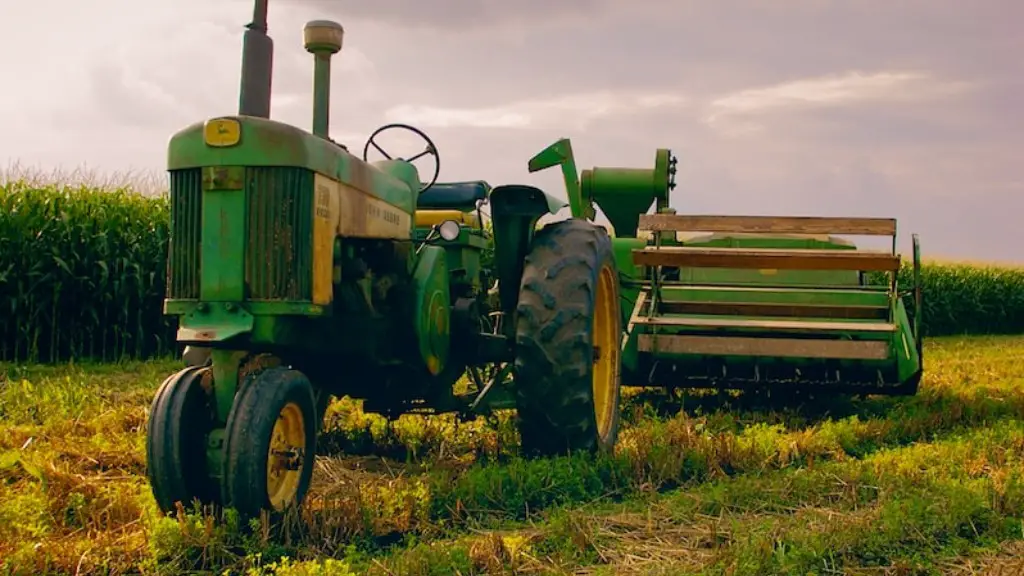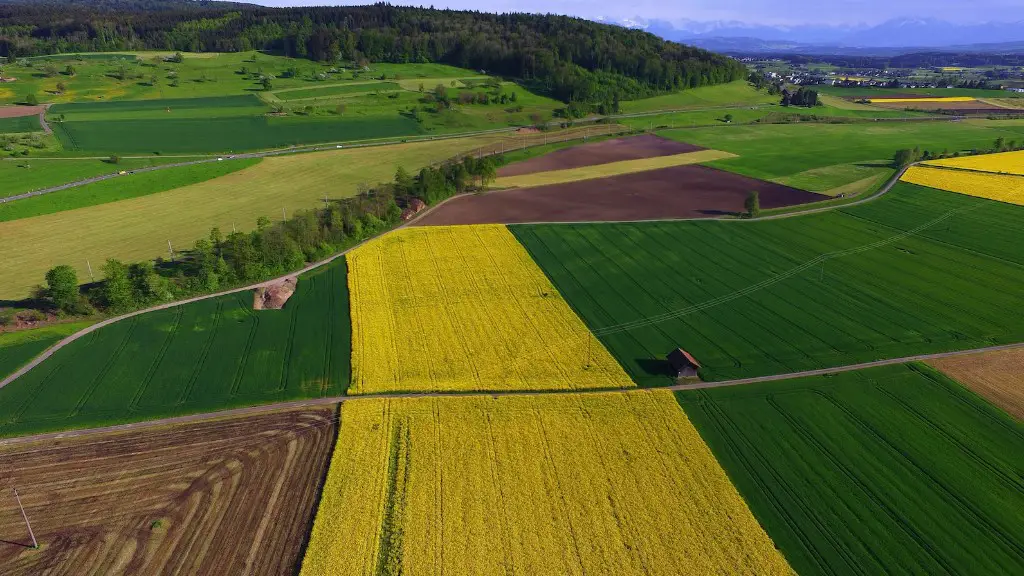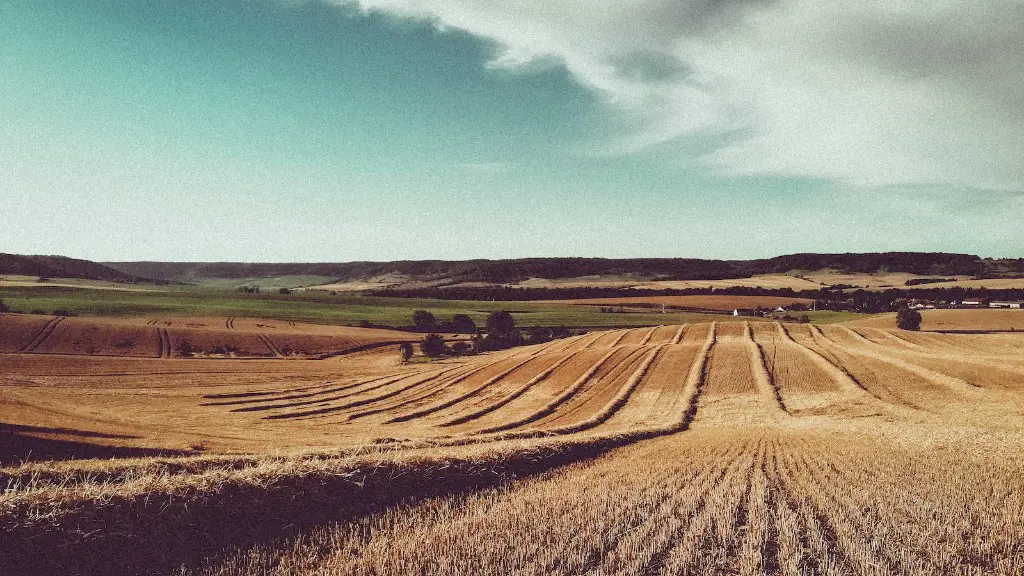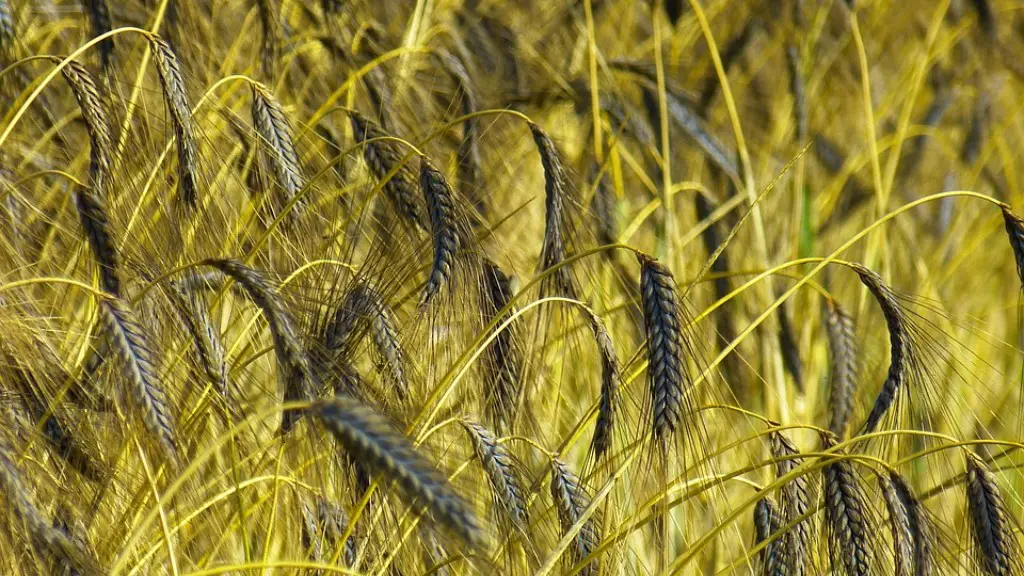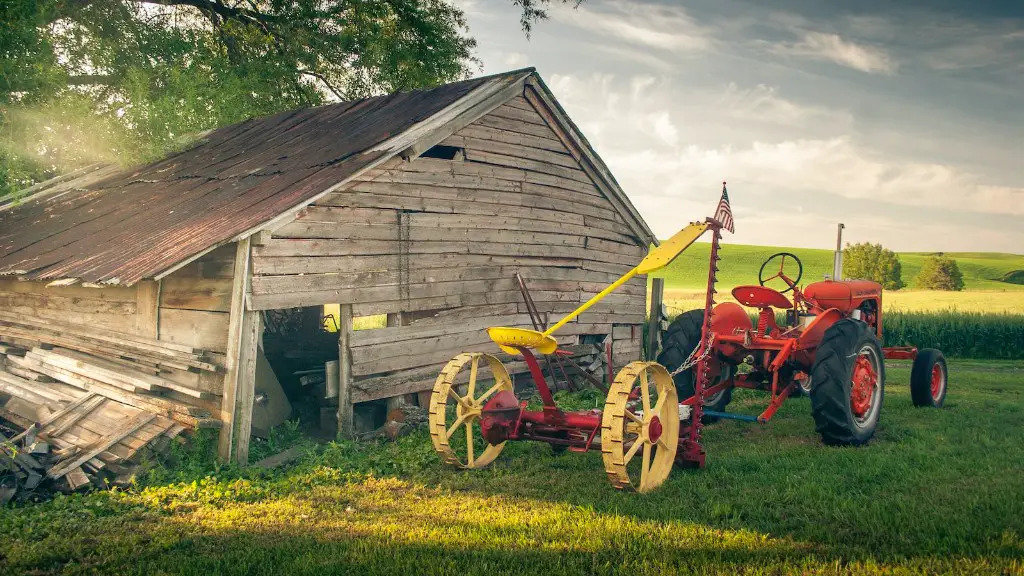Modern agriculture has been around since the Neolithic era, however, it was not until the 1700s that advances in technology, specifically the industrial revolution and the onset of large-scale farming, marks the start of what is known as modern agriculture. The 1700s saw a marked change in the way food was produced and the beginning of an entirely new way of life for many in the rural areas of the world. With the introduction of machines and technology, large-scale farming practices began to emerge, and the Industrial Revolution had finally made it possible to cultivate and harvest crops on an unprecedented scale.
As advances in technology and agriculture continued throughout the 19th century, small-scale farming gave way to larger-scale farming, with a focus on increasing yields, efficiency, and sustainability. Mechanization of farm equipment, the introduction of chemical fertilizers and pesticides, and better-understood crop rotation became important tools in modern agriculture, allowing farmers to produce more food, with less effort and cost.
Advances in technology also had a major impact on animal husbandry, as the development of vaccines, improved feed practices and genetics, and mechanization of animal care equipment allowed for the large-scale breeding and care of livestock. With the development of genetics and animal nutrition, food production through animal agriculture began to increase even further, leading to the current level of production.
The 20th century saw a series of major innovations in the field of agriculture, from the development of the first motorized tractors, to the use of synthetic fertilizers, to the invention of hydroponics and irrigation systems. This period also saw the spread of industrial farming, as farmers began to replace traditional farming practices with large-scale mechanization and industrialization, leading to a much higher level of productivity and control over the farming process.
In the 21st century, advances in technology and research have continued to shape the way we produce food, with the rise of precision agriculture and digital technologies. Precision agriculture is a process that uses data and precision farming technologies to maximize efficiency and sustainability in farming practices, while digital technologies such as drones and aerial imagery have allowed for detailed monitoring and analysis of crops, in order to optimize production.
All these advances in modern agriculture have allowed for a much higher level of production and efficiency, but also come with their own set of challenges. The rise of industrial farming has created an imbalance in the environment, with soil degradation and water contamination becoming increasingly problematic. Additionally, the monoculture approach to agriculture has led to increased vulnerability to climate change, pests, and diseases, with the risk of dramatic food shortages should any of these issues become too severe.
Environmental Impact of Modern Agriculture
The environmental impact of modern agriculture cannot be underestimated, as it plays an important role in the global climate and ecological balance. Intensive farming practices, such as monoculture and the use of synthetic fertilizers and pesticides, can lead to soil degradation, water contamination, and air pollution, with the impacts being felt across entire ecosystems.
The widespread use of industrial farming also leads to a decrease in biodiversity, as large-scale monoculture operations create an environment in which few species survive, with genetic diversity also being a major concern. Additionally, modern agriculture is a major contributor to climate change, with the production of greenhouse gases, methane, and nitrous oxide significantly higher than in traditional farming systems.
The effects of modern agriculture on the environment have been recognized for some time, and many steps have been taken to reduce its impact. Developments in sustainable farming practices, such as organic farming, agroforestry, and no-till farming, have been seen as a way of reducing the environmental impact of farming, while also increasing yields.
The introduction of renewable energy sources, such as solar and wind, has also been seen as a potential way of reducing the impact of farming operations, allowing for the production of crops without having to rely on fossil fuels. Additionally, the introduction of modern technologies, such as the use of LED lighting and hydroponic systems, has allowed for the sustainable production of food without the need to use large amounts of water or chemical fertilizers.
Economic Impact of Modern Agriculture
The introduction of modern agriculture has also had a huge economic impact, with the increased yields, efficiency and sustainability of farming operations allowing for much higher levels of food production and reducing the risks associated with farming. This has meant that less labor is required to produce the same amount of food, leading to increased profits and efficiency.
The industrialization of agriculture has also made it much easier to transport goods around the world, with the development of better transportation and storage systems leading to a global market for food. This has allowed for the global distribution of food, as well as the development of food processing and packaging systems to extend the shelf life of food products.
However, the economic impact of modern agriculture has also been seen as a negative in some areas, with increased competition leading to a drive to produce more food at a faster rate, often leading to lower prices and a decrease in farmers’ incomes. Additionally, the consolidation of large-scale operations can lead to a decrease in local employment, as farmers are replaced with machines and the workforce is moved away from rural areas.
The economic impact of modern agriculture is a complex issue, and one that will continue to be debated as the sector continues to develop. While the advances in technology and efficiency have been beneficial in many ways, it is important to consider the potential negative impacts of modern farming, and to focus on developing sustainable farming practices that can help protect the environment, while still providing the food security that we need.
Social Impact of Modern Agriculture
The social impact of modern agriculture has been substantial, with the introduction of new farming and animal husbandry practices leading to a dramatic shift in the lives of rural communities. Large-scale farming requires fewer workers, with mechanization reducing the need for labor, leading to increased unemployment and migration from rural areas.
The introduction of industrial farming has also had a number of other social impacts, including an increase in global food prices, as well as a decrease in the quality of food due to the use of pesticides and fertilizers. Additionally, it has been argued that the spread of industrial farming has led to the loss of cultural knowledge, with the traditional farming practices of small-scale farmers being replaced or lost altogether.
Modern agriculture has also been seen as a threat to animal welfare, with large-scale operations often leading to overcrowded and inhumane conditions for animals. Additionally, the industrialization of animal agriculture has been criticized for its contribution to climate change, air and water pollution, and the destruction of traditional animal husbandry practices.
Overall, the social impacts of modern agriculture have been far-reaching and have had a significant impact on rural communities. While the benefits of advances in technology and efficiency cannot be denied, it is essential that we take steps to ensure that the potential negative impacts are minimized, so that rural communities are protected and the traditional knowledge and practices of small-scale farmers are preserved.
Conclusion
Modern agriculture has revolutionized the way we produce food, with advances in technology and research allowing for a dramatic increase in yields and efficiency. Despite the benefits, modern agriculture also comes with a number of risks, both environmental and social, with the potential negative impacts needing to be taken into consideration. Sustainable practices such as organic farming, agroforestry, no-till farming, and the use of renewable energy sources are all essential to ensure that modern agriculture is being used in a responsible and sustainable manner.
